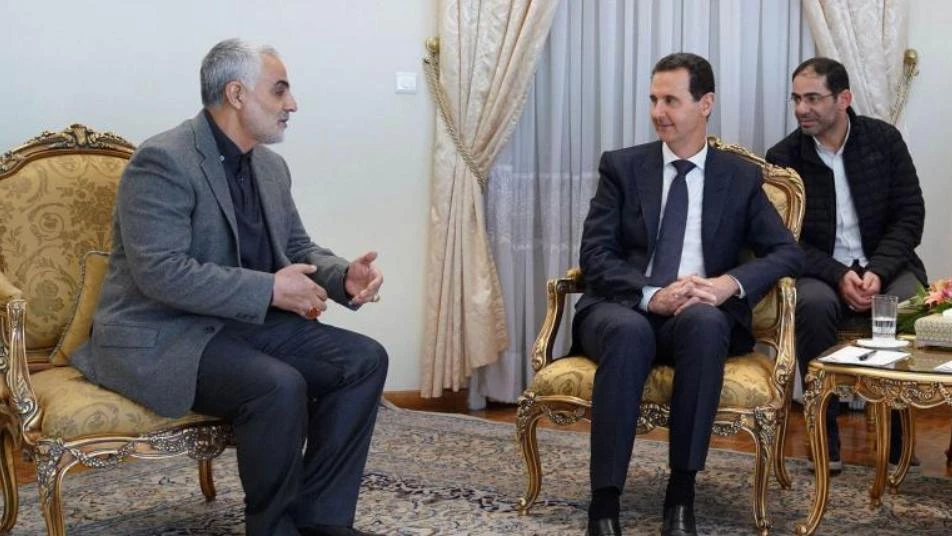Top Iraqi militia commander Abu Mahdi al-Muhandis, an adviser to Soleimani, was also killed in the attack that was authorized by US President Donald Trump.
Soleimani’s killing marks a dramatic escalation in the regional “shadow war” between Iran and the United States and its allies which could quickly ratchet up tit-for-tat attacks.
Iranian regime’s Supreme Leader Ayatollah Ali Khamenei vowed harsh revenge.
Iranian regime has been locked in a long conflict with the United States that escalated sharply last week with an attack on the US embassy in Iraq by pro-Iranian militiamen following a US air raid on the Kataib Hezbollah militia, founded by Muhandis.
“At the direction of the president, the US military has taken decisive defensive action to protect US personnel abroad by killing Qassem Soleimani,” the Pentagon said in a statement.
“This strike was aimed at deterring future Iranian attack plans,” it added.
US officials, speaking on the condition of anonymity, said that Soleimani had been killed in a drone strike. Iranian regime’s Revolutionary Guards said he was killed in an attack by American helicopters.
Pictures showed burning debris on a road near the airport.
Khamenei said harsh revenge awaited the “criminals” who killed Soleimani and his death, though bitter, would double the motivation of the resistance against the United States and Israel.
The head of the Iranian regime Hassan Rouhani said the assassination would make Iran more decisive in its resistance to the United States.
Ahmed al-Assadi, a spokesman for Iraq’s Popular Mobilisation Forces (PMF), the umbrella grouping of Iran-backed militias, blamed the United States and Israel for the killing of Soleimani and Muhandis.
Iraqi paramilitary groups said three rockets hit Baghdad International Airport, killing five members of Iraqi paramilitary groups and two “guests”.
The rockets landed near the air cargo terminal, burning two vehicles, killing and injuring several people.
“The American criminals had detailed information on the convoy’s movements,” Hussaini said.
In Israel, the government of Prime Minister Benjamin Netanyahu - which has long regarded Soleimani as a major threat - gave no immediate response to his death but Israel Army Radio said the military had gone on heightened alert.
Iran, for its part, has absorbed scores of air strikes and missile attacks, mainly carried out by Israel against its fighters and proxies in Syria and Iraq.
Soleimani, who has led the foreign arm of the Revolutionary Guards and has had a key role in fighting in Syria and Iraq, acquired celebrity status at home and abroad.
His Quds Force, tasked with carrying out operations beyond Iran’s borders, shored up support for Bashar al-Assad when he looked close to defeat in the war raging since 2011.
He became head of the Quds Force in 1998, a position in which he kept a low profile for years while he strengthened Iran’s ties with Hezbollah in Lebanon, Assad regime and Shi’ite militia groups in Iraq.
Muhandis, who was killed with Soleimani, oversaw Iraq’s PMF, a grouping of paramilitary groups mostly consisting of Iran-backed Shi’ite militias that was formally integrated into Iraqi armed forces.
His Kataib Hezbollah militia, which received battlefield training from Lebanon’s Hezbollah, has long targeted US forces and was one of the earliest groups to dispatch militiamen to Syria to support Assad.
Based on Reuters



التعليقات (0)